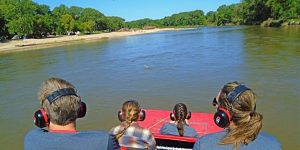In an 8-1 decision, the Supreme Court ruled in favor of a former high school cheerleader who was disciplined by her school for posting a profanity-laden message to Snapchat while off school grounds.
“While public schools may have a special interest in regulating some off-campus student speech,” the Supreme court wrote in its opinion issued Wednesday, “the special interests offered by the school are not sufficient to overcome B. L.’s interest in free expression in this case.”
The case surrounded Pennsylvania high school student Brandi Levy, who sent an image of herself and a friend with middle fingers raised to her friends on Snapchat with the caption, “F*** school, f*** softball, f*** cheer, f*** everything.” Levy was off campus when she sent the message.
Levy, then a 14-year-old junior varsity cheerleader, failed to get a slot on the varisty squad. “I was really upset and frustrated at everything,” she told NPR in April.
The school suspended Levy from her cheerleading squad for a year; she sued the school district and won a victory in the U.S. Court of Appeals for the Third Circuit in Philadelphia, which said that the First Amendment of the U.S. Constitution did not allow for public schools to punish students for speech that occured off of school grounds.
“Although we do not agree with the reasoning of the Third Circuit panel’s majority, we do agree with its conclusion that the school’s disciplinary action violated the First Amendment,” Justice Stephen Breyer wrote in a majority opinion for the court.
Breyer cited cyberbullying and threats to students and teachers as examples of off-campus speech that schools could regulate, but noted that specifics would need to be ironed out by future cases and rulings.
“We do not believe the special characteristics that give schools additional license to regulate student speech always disappear when a school regulates speech that takes place off campus,” Breyer wrote. “The school’s regulatory interests remain significant in some off-campus circumstances.”
“We hesitate to determine precisely which of many school-related off-campus activities belong on such a list,” Breyer added. “Thus, we do not now set forth a broad, highly general First Amendment rule stating just what counts as ‘off campus’ speech and whether or how ordinary First Amendment standards must give way off campus to a school’s special need to prevent, e.g., substantial disruption of learning-related activities.”
Only Justice Clarence Thomas dissented.
In the landmark 1969 decision in Tinker vs. Des Moines, the Supreme Court ruled that students “shed their constitutional rights to freedom of speech or expression at the schoolhouse gate.”
The high court said that schools can not censor free speech on campus unless it is materially disruptive to the education process.
This is a developing story. Check back later for further updates.




